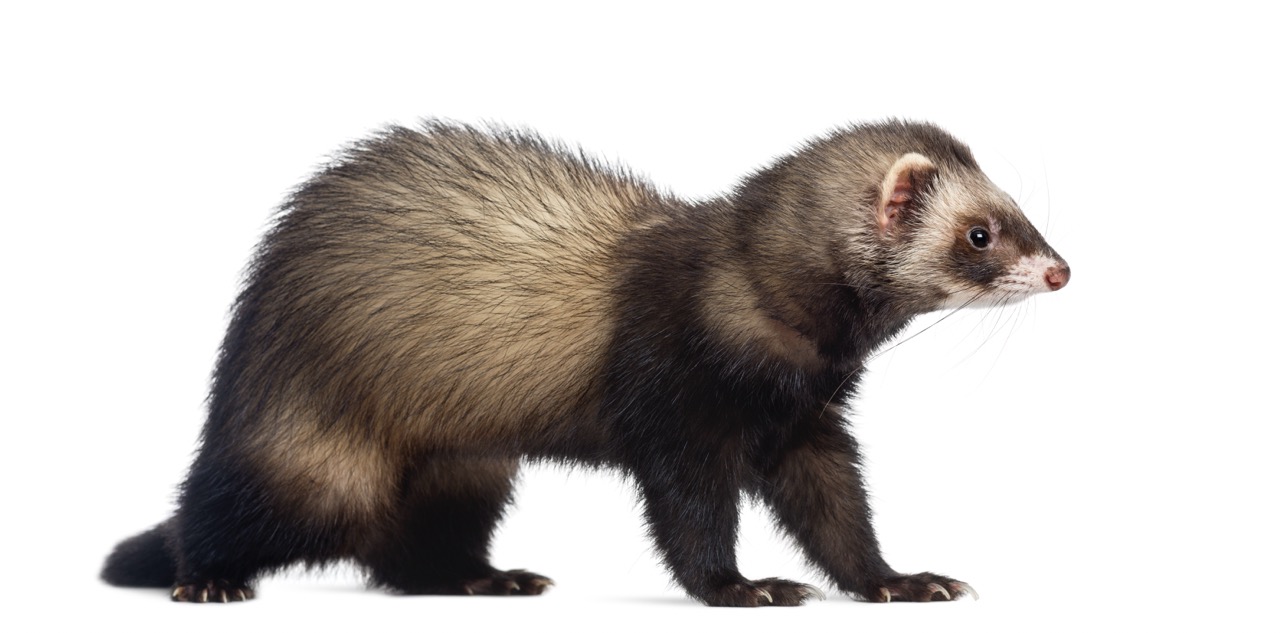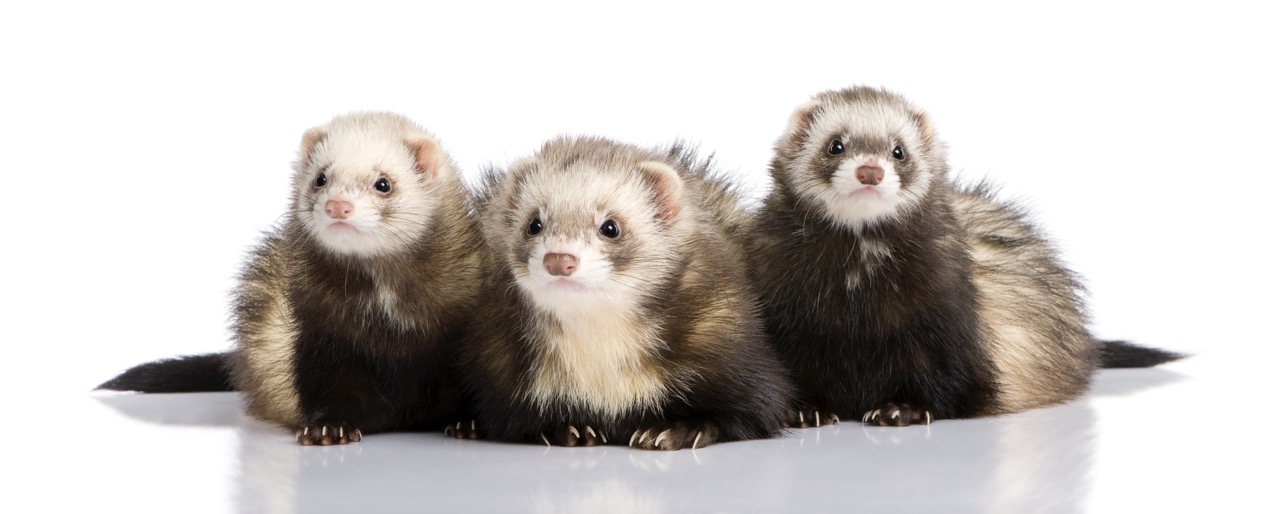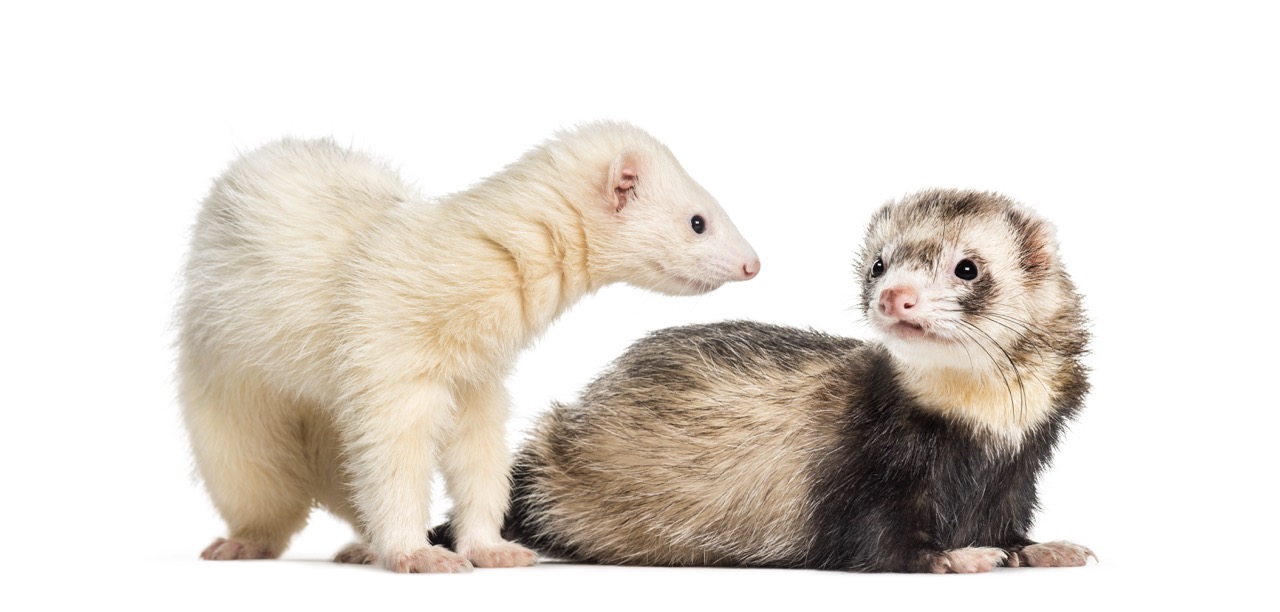Ferrets are unique and captivating pets, known for their playful nature and inquisitive personalities. However, understanding their metabolism is crucial for ensuring their overall health and well-being. Unlike many other domesticated animals, ferrets possess a distinct metabolic system that influences their dietary requirements and susceptibility to various health issues. This article explores how ferret metabolism affects their diet and health, while also offering guidance on optimizing their nutrition to promote a vibrant and healthy life.
Understanding Ferret Metabolism: A Key to Health
Ferrets are classified as obligate carnivores, meaning their bodies are designed to thrive on a diet primarily consisting of animal protein. Their high metabolic rate necessitates frequent meals, as they can quickly process food. This rapid digestion is due to their short gastrointestinal tract, which is approximately three to four times the length of their body. Consequently, ferrets require a diet that can provide them with the necessary energy, nutrients, and hydration to support their fast-paced lifestyle.
The unique metabolic characteristics of ferrets also mean that they have a limited ability to store fat and glucose. Unlike other mammals that can utilize carbohydrates as a primary energy source, ferrets rely predominantly on proteins and fats. This metabolic design requires ferret owners to be diligent in providing a diet rich in high-quality animal proteins, as well as essential fatty acids, to ensure their pets maintain optimal health. Neglecting these dietary needs can lead to severe health complications, including insulinoma and adrenal disease.
Moreover, ferrets have a specific requirement for certain amino acids found only in animal tissues. For instance, taurine is critical for heart health, while other amino acids contribute to muscle development and overall vitality. Understanding these metabolic requirements helps pet owners make informed choices regarding food selection, ensuring that they meet the unique needs of their ferrets while optimizing their health and longevity.
Nutritional Needs: Tailoring Diets for Ferrets
To effectively cater to a ferret’s dietary needs, it is essential to select high-quality commercial ferret foods or formulate a balanced homemade diet. Commercial ferret foods typically contain the necessary animal proteins, fats, vitamins, and minerals needed for optimal health. Ingredients such as chicken, turkey, and duck meal should be prioritized, while fillers like corn and soy should be avoided, as they offer little nutritional value for these carnivorous animals.
Ferrets also require a higher fat content in their diet compared to other pets. A balanced diet for ferrets should include approximately 30-35% protein and 15-20% fat. Additionally, the food should contain minimal to no carbohydrates, as their bodies are not designed to process them effectively. Omega-3 and omega-6 fatty acids are also beneficial for maintaining healthy skin and a shiny coat, which further supports the overall well-being of ferrets.
Supplementation can also be considered to ensure that ferrets receive adequate nutrients not typically found in commercial diets. This could include essential fatty acids, probiotics, and specific vitamins. However, it is critical to consult with a veterinarian before introducing any supplements to avoid potential imbalances or adverse effects on their health.
Common Dietary Issues Impacting Ferret Well-being
Despite the availability of specialized ferret diets, many owners inadvertently contribute to dietary issues by providing inappropriate or low-quality food. One common problem is obesity, which can lead to a multitude of health issues, including diabetes, heart disease, and joint problems. Overfeeding, especially with high-carbohydrate treats, can significantly impact a ferret’s health, necessitating careful portion control and an understanding of their caloric requirements.
Another significant concern is the risk of gastrointestinal disorders due to sudden dietary changes or the introduction of new foods. Ferrets have sensitive digestive systems, and abrupt changes can lead to diarrhea, vomiting, and other gastrointestinal issues. It is essential to gradually transition ferrets to new foods to allow their systems to adapt and prevent discomfort or illness.
Lastly, the risk of developing insulinoma—an insulin-secreting tumor—is heightened by improper diets, particularly those high in simple sugars or carbohydrates. This condition often results from a diet that does not align with a ferret’s metabolic needs, emphasizing the importance of feeding appropriate foods that support their health and energy levels.
Strategies for Optimizing Ferret Nutrition and Health
To promote optimal nutrition and health for ferrets, it is vital for owners to educate themselves on appropriate dietary practices. Regular consultation with a veterinarian knowledgeable about ferret care can provide invaluable guidance in selecting the right food and addressing any dietary concerns. Additionally, monitoring a ferret’s weight and behavior can help identify potential dietary issues before they escalate into serious health problems.
Creating a feeding schedule that mimics a ferret’s natural eating habits can also enhance their well-being. Since ferrets thrive on multiple small meals throughout the day, owners should aim to provide food at regular intervals, ensuring that their pets have access to fresh food and water at all times. This practice can help prevent obesity and support their high energy levels.
Finally, providing enrichment through the inclusion of safe, healthy treats can make mealtime enjoyable and beneficial. Offering small amounts of cooked meats, raw eggs, or freeze-dried animal proteins can stimulate a ferret’s natural hunting instincts while also contributing to their nutritional intake. By fostering a balanced diet and incorporating these strategies, ferret owners can significantly enhance their pets’ health and quality of life.
In conclusion, understanding ferret metabolism is essential for anyone looking to provide optimal care for these fascinating animals. Their unique dietary requirements demand a well-structured diet rich in animal proteins and fats while avoiding harmful fillers and excessive carbohydrates. By tailoring their diets to suit their nutritional needs and staying vigilant about potential dietary pitfalls, ferret owners can greatly improve their pets’ health, vitality, and overall well-being. Through informed choices and consistent care, ferrets can enjoy a long, healthy, and active life, bringing joy to their owners and forming lasting bonds.










